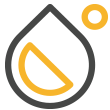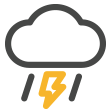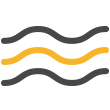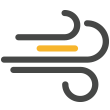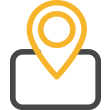ULSAN HARBOUR PILOT야간도선규정
모든 선박을 안전하고, 신속하게!
- HOME
- 야간도선규정
도선약관
Amended by the decision after due consoltation of Pilotage Administration Consoltative Council, April 3, 2009.
Chapter Ⅰ General Roles
Article 1 (Application of the Contract)
- 1. All the agreements in regard to Ulsan port pilotage district shall be in accordance with this contract.
- 2. Any items not provided for in this contract shall be governed by laws and ordinances or common practise.
Article 2 (Status of a pilot)
- 1. A pilot shall faithfully perform his duties of piloting the vessel in the capacity of an adviser to the master to contribute to the efficient operation of the vessel as well as to ensure the safety of traffic at sea.
- 2. The rights and obligations of the master for the safety of the vessel shall not be altered by boarding a pilot.
Chapter Ⅱ Offering Piloting
Article 3 (Application of Pilotage)
Whoever requests a pilot services shall in principle render an application at least 3 hours prior to the estimated time at which pilotage will begin.
Article 4 (Method of application)
- 1. Whoever requests a pilot service shall make a correct application to the pilot district office by means of written or oral notice, telegram, telephone, signal or other reliable means.
- 2. When the master of any ship or shipowner requests a pilot service, he shall declare its name, gross tonnage, draught of water, length over all, breadth extreme, description of cargoes, expected time at which the pilot is requested as well as pilotage service area, quarantine condition and other necessary items.
- 3. If the vessel is in an unusual condition, applicants shall submit relevant particulars as soon as possible notwithstanding the provisions of Article 3.
- 4. Any alteration or cancellation on the submitted application shall be made before the time at which the pilot is expected to depart from the pilot district office for piloting.
Article 5 (Restriction of piloting)
The pilot may refuse his service in case of following circumstances.
- 1. Where a vessel is considerably unseaworthy.
- 2. Where weather, the condition of a vessel and its cargoes or the condition of waterway is considered likely to jeopardize the safe navigation of the ship.
- 3. Where inclement weather impedes the safe operation of the pilot boat.
- 4. Where boarding facilities for pilot are considered unsafe.
- 5. Where there seems to exist any danger to the safety of a pilot in executing his duty.
- 6. Where the district maritime and port authority does not permit a vessel to enter or leave the port or to move within the harbour.
- 7. Such other cases as where there exist other just causes.
Article 6 (Requests for the suspension of vessel's departure)
When the shipowner or his agent delays the payment of pilotage charges without proper reasons, the pilot may request that the concerned District Maritime and Port Authority should suspend the departure of the said vessel or another vessel belonged to the same shipowner.
Article 7 (Piloting of large-sized vessels)
For the safety of navigation of the ship, the pilot district office may assign 2 pilots or more, after consulting with the master, shipowner or their agent, in case of piloting of a vessel over 30,000 gross tons or a vessel in special conditions. But where a vessel transporting the dangerous cargoes , oil, LNG, LPG or the like including "Oil" in accordance with the provision of number 1, Article 1 of the Korean Law of Marine for Protection, the pilot district office shall assign 2 pilots or more. However, it need not to be so where a shipowner owns all facilities for mooring and cargo-handling and the mooring master, a employee of shipowner, is competent to assist the pilot. (Amended by the competent Authority No. 91572-657, Dec. 30, 1995).
Chapter Ⅲ Pilotage
Article 8 (Safety measures in boarding and leaving a ship)
- 1. The master of a vessel shall take all necessary steps for the pilot and pilot boat by giving lee side, reducing speed of the vessel, stopping engines, etc., when the pilot gets on board and subsequently leaves the ship.
- 2. The pilot ladder shall be maintained safe and clean and set up suitable for the pilot boat.
- 3. The master shall always keep ropes, a life buoy and a heaving line at hand ready for use.
- 4. The master shall provide a light to illuminate the ladder effectively at night so as to ensure safe embarking and disembarking of the pilot.
Article 9 (The master's notification of ship's information)
The master of a ship shall, where the pilot gets on board his ship for piloting, provide him with information on the technical features of the ship, gross tonnage, draught of water, dimensions, description of engine, speeds, conditions of nautical instruments, steering malfunction and other particulars necessary for piloting.
Article 10 (The master's obligation for co-operation)
- 1. The master shall ensure that the pilot's orders are carried out quickly and correctly by his officers and crew.
- 2. The master shall have his officers and crew keep continueous and careful lookout on his vicinity and immediately notify anything unusual to the pilot.
- 3. The master shall always have the engines of his vessel and anchors ready for use and shall co-operate with the pilot in using tugs and other means needful for safe pilotage.
Article 11 (Facilities for pilot)
- 1. The master shall provide a pilot with a resting place and other necessary facilities while he is aboard a vessel for piloting.
- 2. When apprentice pilots are accompanied, the master shall also provide them with similar facilities.
Article 12 (Ban on forced escort of pilot)
The shipmaster shall not escort out of the designated pilotage district the pilot who has piloted his ship at sea without reasonable cause. However in case the master takes the pilot out of pilotage district due to unavoidable causes, including the inclement weather, he shall report it to the pilot's office without delay and provide him with appropriate facilities and bear all the expenses required for his return to the pilot's office.
Chapter Ⅳ Pilotage Fee
Article 13 (Certificate of pilotage)
The master shall sign the certificate of pilotage presented by the pilot concerned, with necessary entries as prescribed by regulations after the pilot has completed his service.
Article 14 (Pilotage fee, etc.,)
Pilotage fees and pilot boat charges shall comply with the marine pilot regulations. But, pilot boat operation company can entitle the master or ship owner to the payment of pilot boat charges.
Chapter Ⅴ Indemnity
Article 15 (Compensation, etc.,)
- 1. A pilot, an apprentice pilot, pilot boat crew or their family and pilot office shall be entitled to compensation by the master or shipowner respectively for any loss of life, personal injury, damage to the pilot boat, other properties or their personal effects caused by the ship.
- 2. When a pilot detained or segregated by quarantine or any other reasons ascribable to the vessel after his pilotage service, the master or ship owner shall indemnify the pilot for his loss.
Article 16 (Exemption)
- 1. The master or shipowner shall not pursue the pilot with any personal liability for damages or losses caused to the vessel, master, crew or any third person, even though the damages or losses resulted from negligence of the pilot in rendering his services. In such cases the said pilot can not be entitled to the payment of both the pilotage fee and pilot boat charge to be paid for his services.
- 2. With regard to any claim arising out of the lawsuit and any other action by a third person directly against the pilot by reason of his negligence in piloting, the master or shipowner shall compensate the pilot for the part which exceeds the total amount of pilotage fee paid or payable to the pilot for his services of the said vessel. However, in case the master or shipowner is entitled to limit his liability under applicable law pertaining to shipowner's liability for any direct indemnity to such third person is deducted within the said limitation to which the master or the shipowner is entitled to limit his liability to such third person under applicable law pertaining to shipowner's liability.
- 3. The provisions of Article 16 paragraph 1 and paragraph 2 shall not apply to such personal liability of the pilot as may arise by reason of his intentional or serious fault.

